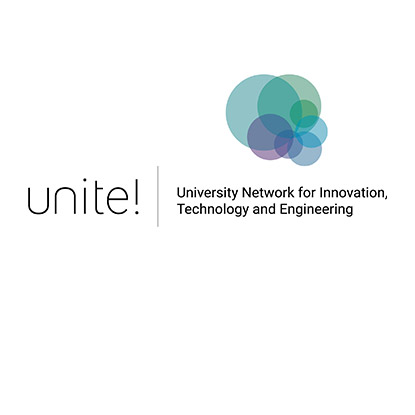Unite! Quality Forum
Economy and quality management gave valuable input for the further development of Unite!
2021/10/27
External stakeholders see the European University alliance Unite! on a good way to achieve a new quality of academic exchange and university networking in Europe. Representatives from regional economy, national quality assurance agencies and alumni of Unite! partner universities were invited to a digital “Unite! Quality Forum” to comment on the quality objectives and quality management and to give impulses for their further development.

The 13 stakeholders advised Unite! to further sharpen the quality objectives for the further development of the alliance and to define even more clearly which competencies Unite! graduates should excel in. The alliance should also pay close attention to organize the exchange programs and mobility opportunities in Unite! effectively and thus making them easily accessible to students and employees of the partner universities. Long-term Unite! quality goals, as well as further development of the regulatory framework, for example for accreditation of degree programs and doctorates, should continue to keep an eye on, while the Unite! quality management system under development was seen as central to achieve quality goals. In a lively discussion enriched by diverse perspectives, stakeholders highly emphasized the potential of Unite! to realize a new quality of exchange and networking among students, researchers and other employees across Europe.
The Unite! Quality Forum is organized by the Unite! Task Force Quality Management and was carried out with the participation of Unite! Secretary General Andreas Winkler. The results will now be added to the further decision-making on Unite! quality management as well as the next steps in the strategic development of the alliance.
Matthias Adam/mho
About Unite!
Alongside TU Darmstadt as the coordinator,Unite! (University Network for Innovation, Technology and Engineering) also includes Aalto University (Finland), KTH Royal Institute of Technology (Sweden), Grenoble Institute of Technology (France), Politecnico di Torino (Italy), Universitat Politècnica de Catalunya (Spain) and Universidade de Lisboa (Portugal).
The seven partner universities aim to use the European University to create a trans-European campus for students and researchers with the involvement of regions and companies. The partners have a total of 167,000 students, already cooperate closely in more than 80 EU projects and have exchanged more than 2,000 students in the past five years. The alliance has set itself the goal of combining courses for the benefit of students, breaking down existing technical and administrative hurdles, and thus significantly increasing student mobility. Research will also benefit from the conditions created for larger and easier cooperation, which will strengthen the competitiveness of the European Higher Education Area overall.

